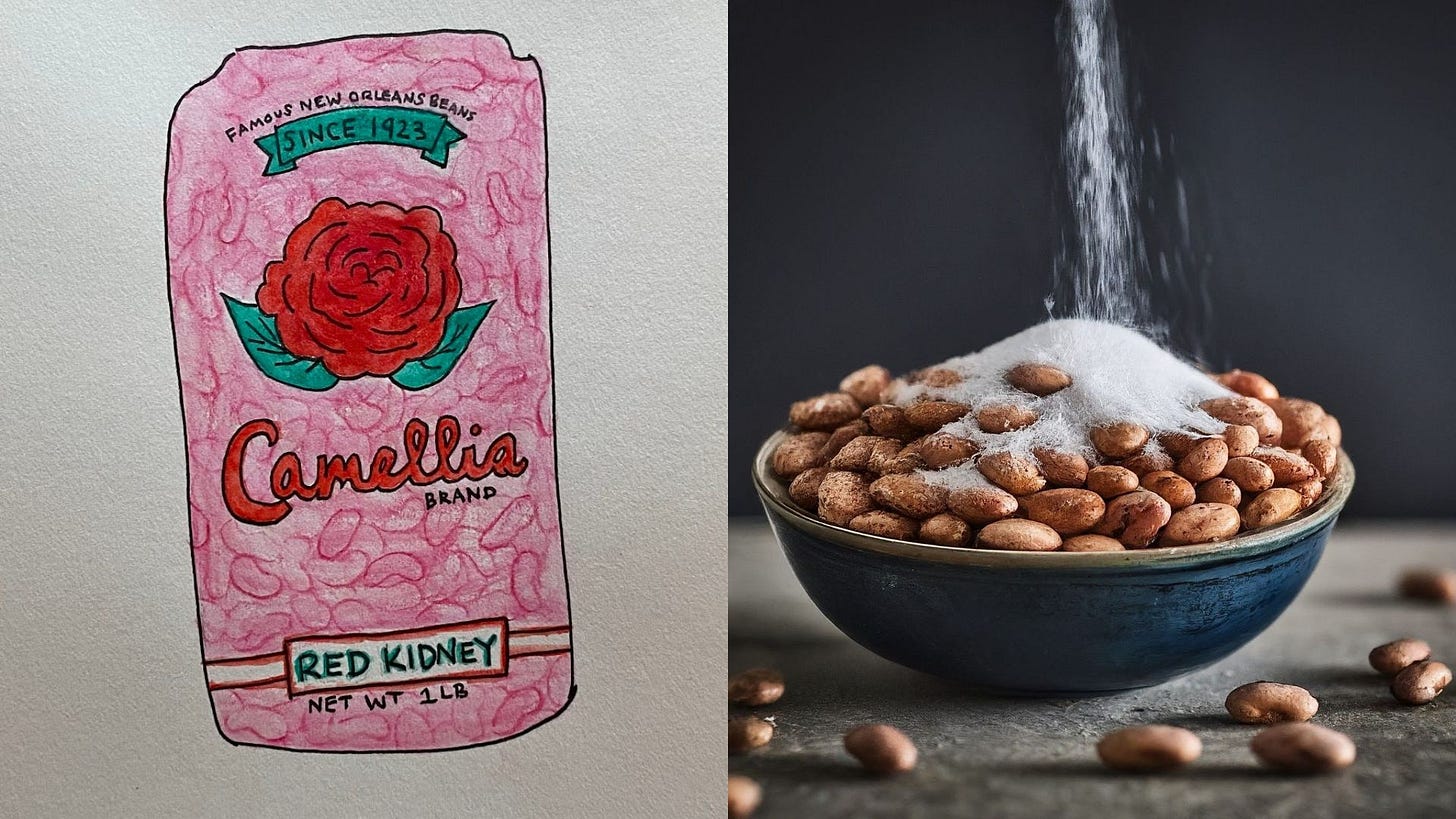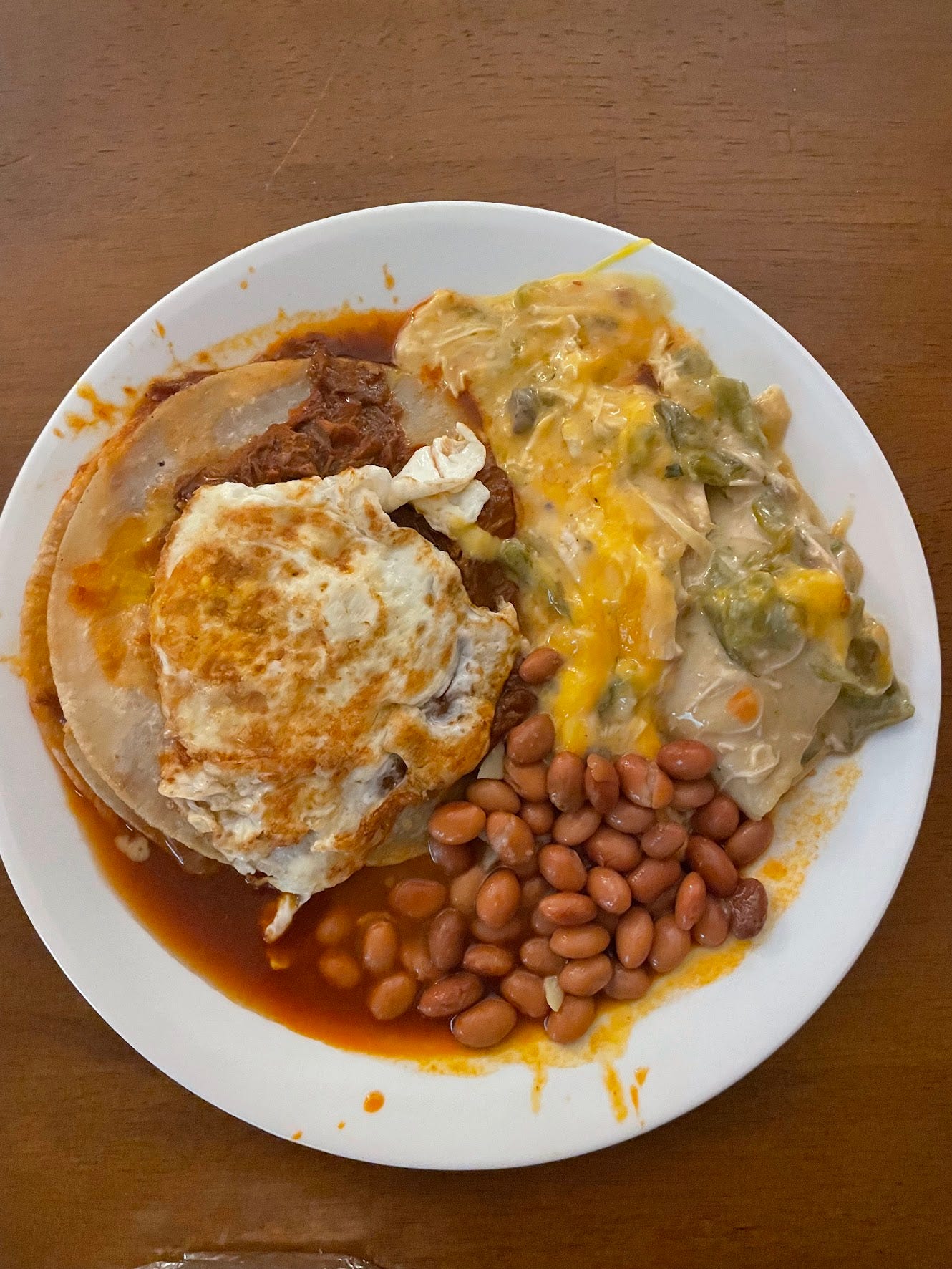Sabrina,
Thank you for reminding me about the joys of chicken paprikash and about the joys of when we first became friends! It’s so grim and rainy in London, so I am going to make your paprikash recipe soon to warm my spirits. I need nokedli to get me through. The other food that has been keeping me going will not come as a shock to you – it’s beans.
We love beans. We have been known to put beans in soup, put beans on toast, put beans in a salad, and eat beans straight from the pot.
I’ve been on a quest to make perfect beans, but one question has continued to elude me. When should you salt them?!
Every time I research this I find a different answer. Many sources warn that if you salt your beans too early the skins will be tough. These chefs always have a tone of alarm. Salt too early and Bad Stuff will happen.
But then conventional cooking wisdom suggests that you should salt things earlier rather than later. If you don’t salt your meat or your pasta water early enough you’ll end up with bland food that’s not worth eating. Salt too late and Bad Stuff will happen.

I recently picked up a cookbook dedicated entirely to beans, Heirloom Beans, by Steve Sando and Vanessa Barrington. Steve Sando founded Rancho Gordo to revive and sell heirloom beans. When I read Sando’s poetic description of how to salt beans, a lightbulb went off for me.
He says: “At one point your pot will smell less and less like aromatic vegetables and more and more like beans. If you test one you’ll see that it’s softening even if it still has a ways to go. This is when I salt my beans. it’s almost as if there has been a battle between the beans and me, and this is the moment of no return for the beans. I have won. I will now salt them.”
This seemed like the perfect answer. The bean question was solved. I was at peace.
The next day I excitedly texted our good friend Paxton, an expert bean chef who has made me many of the best pots of pinto beans I’ve ever had, to tell him my discovery. Paxton had equally poetic advice, but in the opposite camp. He said he salts his beans throughout. “My mom says if you don't salt it that's when ‘they take their jackets off.’”
I was back to square one. Should be doing battle with my beans? Should I be making sure they wear their jackets?!
Ultimately, I’ve come to my own (less poetic) conclusion: beans are good, salt them whenever, nothing bad will happen.
Recipe: Big Pot of Beans
Ingredients
1 pound dried beans, any variety
1 onion
5-10 cloves of garlic
Assorted aromatics
Method
Rinse your beans and put them in a stockpot. Ideally this will be a taller pot rather than a squatter pot so that less liquid evaporates while the beans cook.
You will notice that I have not soaked my beans. “When should you soak your beans?!” could be another post, but I will spare you for now! I’m too disorganized to remember to soak my beans, and they seem to turn out just fine, so we’re not soaking and we are rolling with it.
Dice the onion and peel and smash the garlic cloves. Add to the pot with the beans. If you’re adding any aromatics, chuck them in too (I added a few ideas for flavor combos down below). Add water to the pot, covering the beans by 2 inches or so. You can keep adding water as the beans cook, so don’t stress too much about the exact amount.
Now, decide if you want to salt your beans now or later or in the middle. It doesn’t matter! Do whatever you’re feeling!
Bring the beans to a boil, and then leave them on a low simmer. Check the pot occasionally and add more water if needed. Cook the beans until they’re soft and creamy, which takes a few hours and completely depends on the beans you are using.
Serve on their own, or eat them with anything you have on hand.
Bonus: a few ideas for aromatics
For pinto beans
Add a bit of meat, if you happen to have a sausage or a hunk of pork lying around
For black beans
Orange peels are an unexpectedly nice addition
Oregano
For white beans
A few lemon peels
Dried chili
A running letter between long distance friends who love to eat





